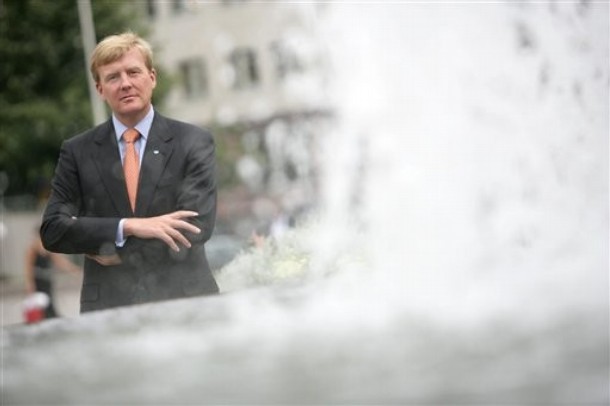Sanitation and waste water use on World Water Week agenda
 Stockholm - Lack of access to sanitation remains a major impediment to global development while claiming hundreds of lives daily, experts agreed Monday as the annual World Water Week opened Monday.
Stockholm - Lack of access to sanitation remains a major impediment to global development while claiming hundreds of lives daily, experts agreed Monday as the annual World Water Week opened Monday.
Dutch Crown Prince Willem-Alexander one of the dignataries at the meeting, that said despite progress to build latrines and improve sanitation around the world "there is still a long way to go" and underlined the need to break taboos about sanitation.
Asia and Latin America had experienced "remarkable progress" in terms of better sanitation, he said in his opening remarks.
Willem-Alexander noted improvements in Africa although "the increase cannot keep pace with population growth. More people means more waste. It's that simple," he said in his opening remarks.
The United Nations has designated 2008 as the year of sanitation, and Willem-Alexander chairs the UN Secretary General's Advisory Board on Water and Sanitation.
Statistics available to the some 2,500 delegates gathered in Stockholm suggested that 2.5 billion people lack access to adequate sanitation causing 1.4 million preventable child deaths due to diarrhoea diseases each year.
A related problem was the increasing use of "untreated or partially treated wastewater for agriculture," according to a report released by the International Water Management Institute that warned of epidemics and the spread of water-borne infections.
Waste water was often used to produce vegetables and cereals, especially rice, the report from the Sri Lanka-based institute said, noting that such food production also offered job opportunities to urban poor, not the least women and migrants.
"It's a widespread phenomenon, occurring on 20 million hectares across the developing world, especially in Asian countries, like China, India and Vietnam, but also around nearly every city of sub- Saharan Africa and in many Latin American cities as well," IWMI researcher Liqa Raschid-Sally and lead author of the report said.
Banning the use of waste water was likely not an option but "drip irrigation and correct washing" of the produce could reduce health risks, the report said.
A public exhibition at a square in downtown Stockholm headlined "Sanitation is dignity" forms part of the week. The exhibition aims at raising awareness about sanitation and includes cut outs of people squatting behind bushes and public buildings.
The exhibition has earlier been staged in cities including Berlin, New York and Nairobi.
"For women and girls toilet issues are a matter of dignity and security," said Cecilia Martinsen, Project Director of the Stockholm International Water Institute (SIWI).
The institute was formed in 1997 and organizes the World Water Week that dates back to 1991 and administers the 150,000-dollar Stockholm Water Prize.
Professor John Anthony Allan of King's College London and the School of Oriental and African Studies was Thursday to receive the 2008 Stockhom Water Prize.
He was awarded for launching the concept of "virtual water" that "measures how water is embedded in the production and trade of food and consumer products."
To grow, produce, package and transport a cup of coffee some 140 litres of water are used according to the estimate.
Another award, the Swedish Baltic Sea Water Award worth some 23,000 dollars, was to be presented later in the week to Professor Krzysztof Skora of the University of Gdansk, Poland for his efforts to protect the Baltic Sea. (dpa)